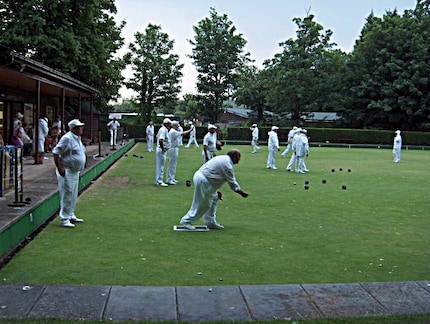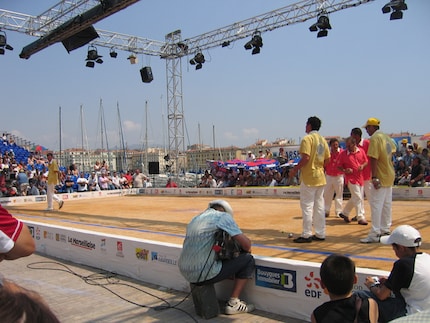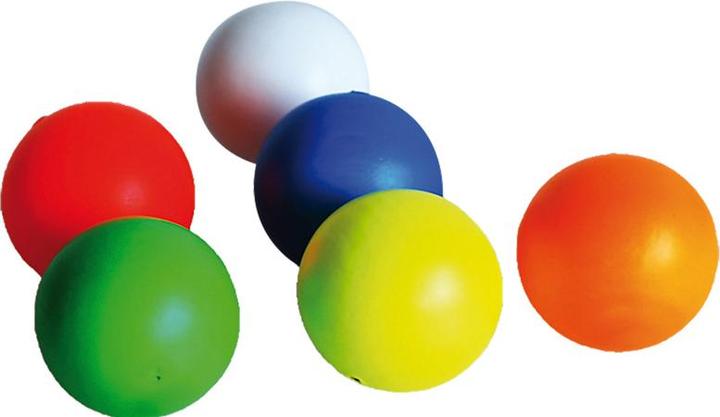

Metal balls and a gravel track – that’s all you need for pétanque
It looks so easy, but the path to perfection is long. Even so it’s easy to get into the world of pétanque. The ball game requires a lot of precision, but not much equipment.
Alright, let’s throw a few balls. That’s what I thought to myself when the invite from our CEO to our yearly managers’ event landed in my inbox. Last year, the management team went rowing, this year it’s a pétanque tournament. Even if there was less sweat than the year before, pétanque isn’t for the fainthearted. It turned out to be much more than an easy ball-throwing session.
My introduction to the world of the game, which originated in France, took place on the Josefwiese in Zurich. That’s the home to the Zurich Pétanque Club. Next to the green meadow is an area of fine gravel, perfect terrain for throwing the metal balls. The main idea of the game is simple: every player has three balls. Usually, two teams of two play against each other. The goal is to roll your ball as close as possible to the target ball, which is around 6–10 metres away. Of course, there’s more details to the rulebook. You can read up on them here (pdf in German). One of the shortest, most simple set of rules is this one (in German).

Source: Sonja Kunz
When the weather’s good, there are games at Josefwiese every afternoon. Ueli Bräm has been involved in the Zurich Pétanque Club for decades and regularly introduces groups like ours to the «jeu». He patiently and humorously explains the order in which the players throw their balls. He gives tips on how the ball should fly at an arc and how the position of the body and hand can be optimised. He also shares tactical tricks. Before you get to that, you should first be able to at least roughly hit the intended target.
As a beginner, I’ll be quite happy if my three balls don’t land miles away from the target ball. One hour later, I’ve at least got the hang of some of the throws. Sometimes the balls are so close to the target that we have to measure to see which team has won the point. Pétanque professional Ueli Bräm has got an eye for who’s won. Nevertheless, he allows us the joy of measuring with a roll-out tape measure that, if necessary, shows the distance to within a tenth of a millimetre.
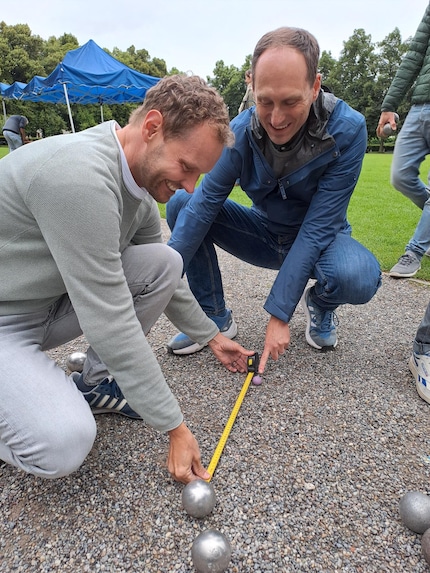
Source: Sonja Kunz
There are colleagues (certain men that is) who definitely want to win. Ueli Bräm intervenes as a referee because a team wants to claim victory too boldly. Normally there’s no referee when playing in your free time. You just have to come to an agreement. But if there isn’t a clear winner after all the balls have been thrown, then the group who want to claim victory has to prove it by measuring.
And that can take a while. The procedure even made it into an Asterix volume («Tour de France», published in 1963). The innkeeper and guests of a tavern in Massilia stop the Romans through a quickly staged game (page in German), while Asterix and Obelix continue their tour of France towards Tolosa, today’s Toulouse.

Little investment needed to get started
If you want to try out your pétanque skills, you don’t need much to get started, as Ueli Bräm confirms. According to the rules, the iron balls may have a weight of between 650 and 800 grammes and a diameter of at least 70.5 and a maximum of 80 millimetres. If you want to be on the safe side when buying your balls and equip yourself correctly and stylishly for future competitions, the balls from the market leader Obut are a safe recommendation. But you don’t have to go for the expensive professional balls straightaway.
You can also increase sales for pétanque accessories in our shop. You definitely need at least one target ball, in other words, the «cochonnet». I’d also recommend a tape measure so that you can take measurements when making decisions. This is available in accessory sets.
Then there’s the nice-to-haves. They range from stylish leather bags to cloths to clean the dust from the steel ball before the next throw. You can also save yourself from having to draw a circle in the gravel with your expensive trainers. There are foldable rings that show where the throw is taking place. If you don’t want to bend when you’re picking the balls up at the end, then a band with a magnet on could be helpful.
Here you’ll find almost 200 products (as of June 2024) currently sorted under boules or boccia in our range.
Much more important than the perfect equipment is the joy of playing, as Ueli Bräm so nicely said at Josefwiese in Zurich. Despite all the sporting ambitions, pétanque is usually a leisurely affair. This allows the players to discuss current affairs or exchange the latest gossip at any time. And that’s exactly what the management team did at our pétanque premiere.
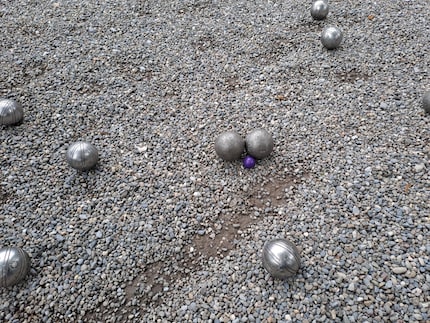
Source: Sonja Kunz
Journalist since 1997. Stopovers in Franconia (or the Franken region), Lake Constance, Obwalden, Nidwalden and Zurich. Father since 2014. Expert in editorial organisation and motivation. Focus on sustainability, home office tools, beautiful things for the home, creative toys and sports equipment.
Interesting facts about products, behind-the-scenes looks at manufacturers and deep-dives on interesting people.
Show all